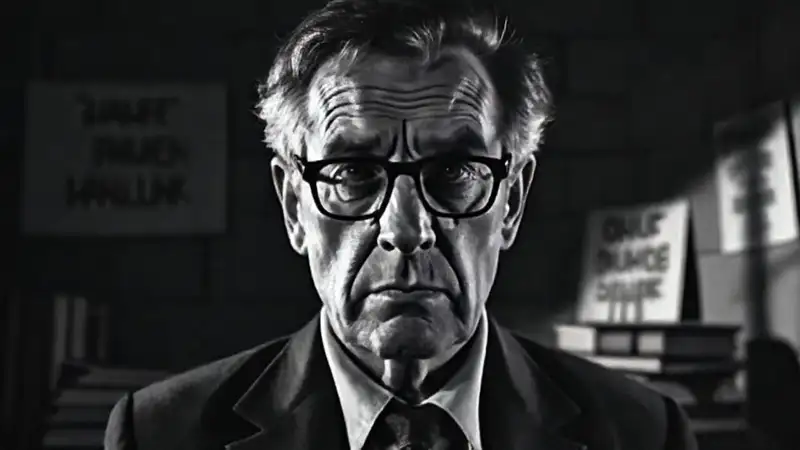What makes Arthur Miller's plays politically charged in Literatura

Arthur Miller’s work occupies a unique and enduring position within American literature. He wasn't merely a playwright crafting entertainment; he was a social commentator, a moral voice, and often, a direct critic of the political landscape of his time. His plays, deeply embedded within the cultural anxieties of the 20th century, consistently challenged established norms and explored the fraught relationship between individual conscience and societal pressures. This exploration isn't just artistic; it's fundamentally political, reflecting and shaping the public discourse around pivotal moments in American history.
The impact of Miller’s plays extends far beyond the stage, influencing political thought and sparking significant debate. His engagement with McCarthyism, the Red Scare, and the American Dream's inherent contradictions cemented his reputation as a playwright unafraid to confront uncomfortable truths. This article will examine the specific elements – thematic concerns, dramatic techniques, and historical context – that imbue Miller’s plays with their enduring political charge within the broader context of Literatura.
## The Shadow of McCarthyism: The Crucible
The Crucible, arguably Miller’s most politically potent work, functions as a searing allegory for the McCarthy era. The Salem witch trials serve as a powerful metaphor for the climate of fear and paranoia fueled by anti-communist sentiment in the 1950s. Miller directly drew parallels between the baseless accusations and trials of innocent individuals in Salem and the blacklisting and persecution of suspected communists in America. It was a deliberate attempt to critique the misuse of power and the dangers of mass hysteria.
The play's central theme of mass hysteria highlights the fragility of reason and the ease with which populations can be manipulated by fear. The relentless accusations, fueled by personal grudges and social anxieties, illustrate the destructive consequences of unchecked power. Miller's dramatic choices - the building tension, the escalating accusations, and the ultimate tragic consequences - reflect the devastating impact of political paranoia on individuals and communities.
Ultimately, The Crucible transcends its historical context and offers a timeless warning about the dangers of political conformity and the importance of individual integrity. The characters' struggles against the prevailing hysteria resonate with audiences across generations, making it a powerful indictment of political extremism and a testament to the enduring human need for justice and truth, securing its place within Literatura.
## Deconstructing the American Dream: Death of a Salesman
Death of a Salesman is a devastating critique of the American Dream, exposing its inherent contradictions and the crushing pressure it places on individuals. Willy Loman, the play’s tragic protagonist, embodies the failure of a system that equates success solely with material wealth and popularity. His desperate pursuit of an idealized version of the American Dream leads to his ultimate downfall, illustrating the hollowness of superficial values.
The play’s structure, which fluidly interweaves past and present, underscores the cyclical nature of Willy's failure and the illusion of progress within the capitalist system. Miller uses fragmented memories and distorted perceptions to reveal the psychological toll of chasing an unattainable ideal. This innovative narrative technique forces the audience to confront the uncomfortable reality that the American Dream is not universally accessible or attainable.
Through Willy's downfall, Miller challenges the very foundation of American capitalism, exposing its potential to alienate and dehumanize individuals. The play's lasting political impact lies in its ability to provoke introspection about the values and goals that shape American society, making it a significant contribution to Literatura's examination of societal ideals.
## Examining Individual Responsibility: All My Sons

All My Sons confronts the uncomfortable issue of corporate responsibility and the ethical compromises made in the pursuit of profit. Joe Keller, the play’s central figure, is a successful businessman who knowingly sold faulty airplane parts during World War II, resulting in the deaths of twenty pilots. The play explores the question of individual culpability within a system that encourages compromise and prioritizes financial gain.
The play’s dramatic tension stems from the conflict between Joe’s desire to protect his family and the moral weight of his actions. Miller skillfully depicts the psychological toll of guilt and the corrosive effects of dishonesty, revealing the devastating consequences of sacrificing ethical principles for personal advantage. The family dynamic – particularly the relationship between Joe and his sons – becomes a microcosm of the larger societal issues at play.
All My Sons offers a sobering examination of the ethical ambiguities inherent in American capitalism and the price of success built on a foundation of deception. Miller’s unflinching portrayal of Joe Keller’s character challenges audiences to consider their own responsibility in a society often driven by profit and ambition, further establishing the play's political significance within Literatura.
## The Tyranny of Conformity: The Man Who Died Young (and other one-acts)
While often overshadowed by Miller’s longer works, his one-act plays, particularly The Man Who Died Young, powerfully explore the theme of conformity and the suffocating pressure to conform to societal expectations. The play depicts a young man, Franklin Pierce, who refuses to participate in the superficial rituals of his community, leading to his isolation and tragic demise.
Miller utilizes stark and minimalist staging in these one-acts to amplify the sense of alienation and emotional detachment. The dialogue is often spare and understated, emphasizing the profound disconnect between individuals and their surroundings. This stylistic approach reinforces the play's central message: that blind adherence to social norms can stifle individuality and lead to despair. The reductionist setting intensifies the psychological impact.
These plays represent a subtle but crucial aspect of Miller’s political critique, arguing that the denial of individual expression and the suppression of dissent are forms of political control. The Man Who Died Young and Miller's other one-acts remind audiences of the importance of resisting conformity and embracing authenticity, contributing to Literatura’s critical examination of social and political pressure.
## Conclusion
Arthur Miller’s plays stand as a powerful testament to the intersection of art and politics. He didn’t offer easy answers or simplistic solutions, but instead presented complex characters grappling with challenging moral and political dilemmas. His exploration of themes like McCarthyism, the American Dream, corporate responsibility, and the dangers of conformity continues to resonate with audiences today. The enduring power of his work lies not only in its dramatic brilliance but also in its unflinching examination of the human condition within specific political contexts.
Miller’s legacy extends beyond the theatrical stage, influencing subsequent generations of playwrights and political thinkers. His commitment to social justice and his willingness to confront uncomfortable truths have solidified his place as a significant voice in American literature. By consistently challenging the status quo and prompting audiences to critically examine their own beliefs and values, Miller’s plays remain politically charged and profoundly relevant, securing their place as vital contributions to Literatura.
Deja una respuesta